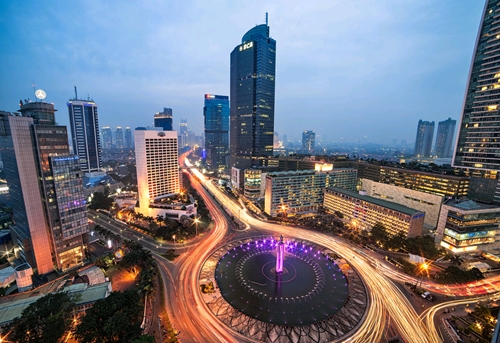The figure was also lower than the previous forecast of 5.17 percent.
Indonesian Finance Minister Sri Mulyani Indrawati said the momentum of economic growth could be well-maintained despite global uncertainty.
The minister noted that household consumption, investment, and government consumption remain the drivers of the national economic growth.
The performance of both exports and imports is still limited along with the downward trend of global trade due to the increasing pressure of the trade war, she stated.
    |
 |
|
A corner of Jakarta, Indonesia. Photo: tripadvisor.ie |
The 2018 economic growth had a direct impact on the creation of job opportunities and reduction of the unemployment rate, poverty rate, and economic disparities, she added.
The unemployment rate stood at 5.34 percent as of August 2018, while the poverty rate was recorded at 9.82 percent and gini coefficient, a gauge of economic inequality, at 0.389 as of March 2018.
Meanwhile, the Central Bank of Indonesia (BI) revealed that December inflation came in at 3.13 percent, lower than the 3.61 percent of the same period last year and the 3.33 percent average for the past three years.
The bank will maintain price stability and enhance policy coordination with the Central Government and Regional Administrations to control low and stable inflation, which in 2019 is predicted in the 3.5+1 percent target corridor.
BI executive director for communications Agusman Zainal stated that core inflation stood at the low rate of 3.07 percent in line with policy consistency by BI in terms of maintaining exchange rate stability and anchoring rational inflation expectations.
Source: VNA